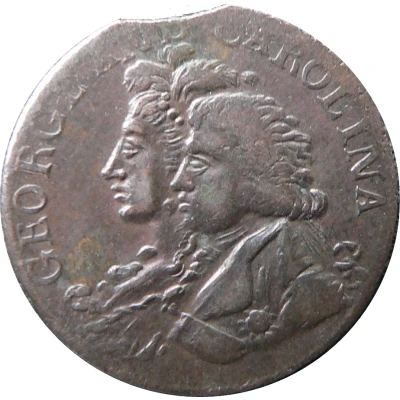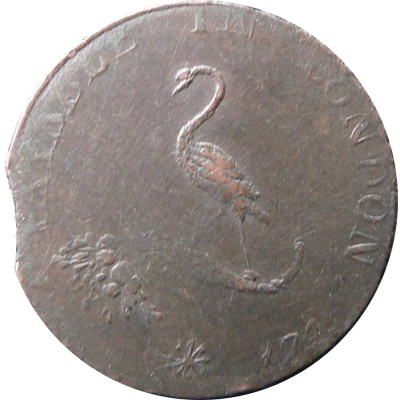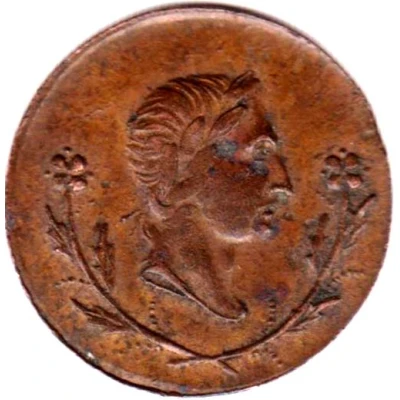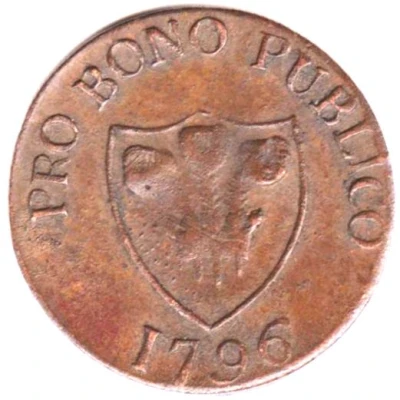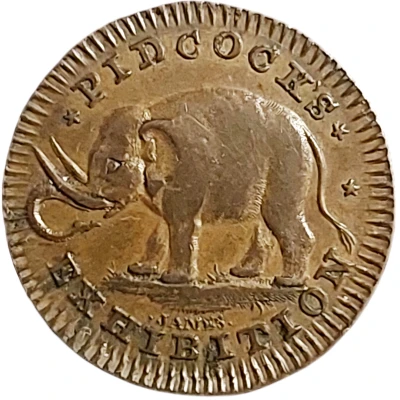
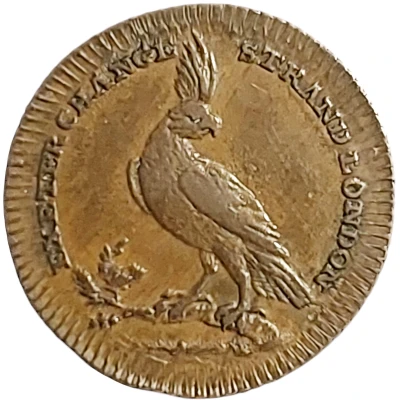

© robertcronje1 (CC BY-NC-SA)
1 Farthing Middlesex - Pidcock / Exeter Change ND
| Copper | 3.3 g | 21 mm |
| Issuer | United Kingdom (United Kingdom, British Overseas Territories and Crown Dependencies) |
|---|---|
| King | George III (1760-1820) |
| Type | Token |
| Years | 1795-1801 |
| Value | 1 Farthing (1⁄960) |
| Currency | Conder tokens (1787-1797) |
| Composition | Copper |
| Weight | 3.3 g |
| Diameter | 21 mm |
| Shape | Round |
| Technique | Milled |
| Demonetized | Yes |
| Updated | 2024-10-09 |
| Numista | N#88436 |
|---|---|
| Rarity index | 86% |
Reverse
Cockatoo standing on branch facing left looking right, legend around, toothed border.
Script: Latin
Lettering: EXETER CHANGE STRAND LONDON
Engraver: James
Edge
Milled
Comment
Undated token, circa 1795-1801 made by James.Advertising Pidcock's exhibition of living animals at the Exeter Change, Strand, London, England.
There are two similar tokens - the same design both sides, but the edge is different.
This one is with a milled edge (Batty# 457), the other one is with a plain edge (Batty# 465).
Interesting fact
One interesting fact about the Token 1 Farthing (Middlesex - Pidcock / Exeter Change) ND (1795-1801) coin is that it was issued during a time of severe coinage shortages in the United Kingdom, particularly in rural areas. To address this issue, many private companies and individuals issued their own copper tokens, like this one, which were accepted as currency by local merchants and traders. This coin's design features the image of a crown on one side and the initials "P/E" on the other, representing the Pidcock and Exeter Change companies that issued it. Despite being made of copper, this coin was still considered a valuable form of currency during its time.
